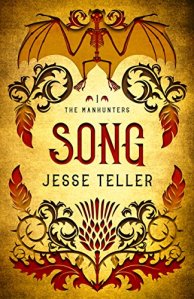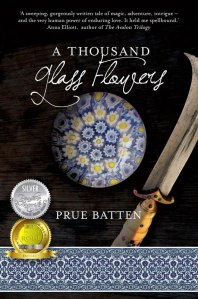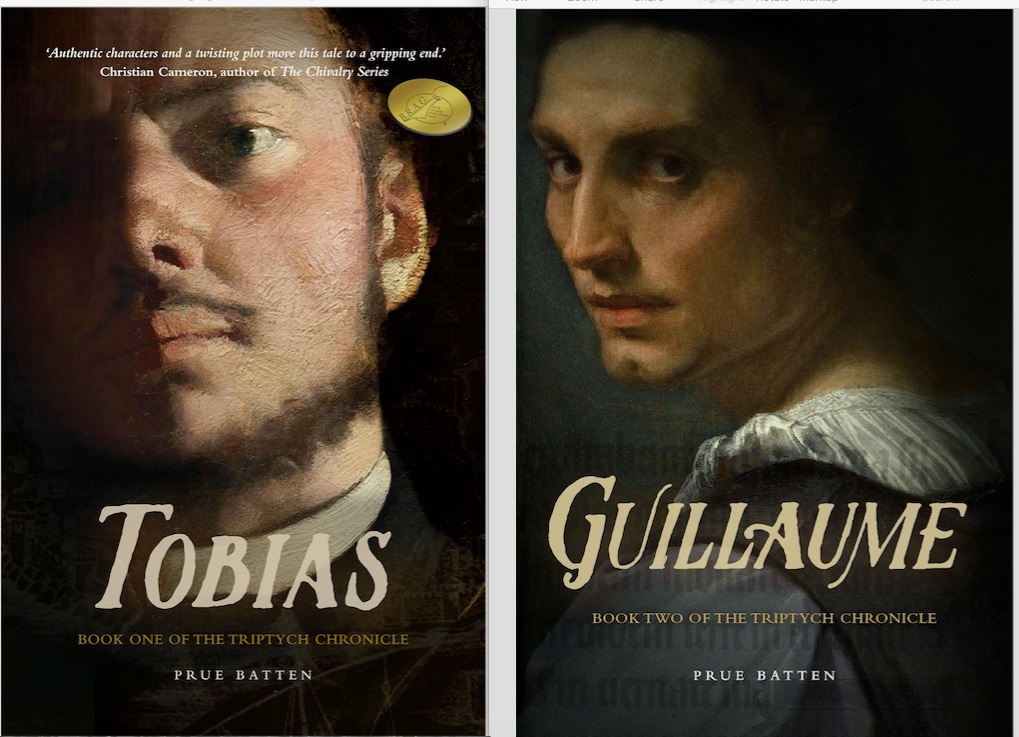Today I’m pleased to be taking part in the blog tour for JULIA PRIMA A Roma Nova Foundation Story by Alison Morton.
I was also lucky enough to have the chance to ask the author some questions about their work so keep reading on for a 10 Questions With feature. I’ve not had one on the blog in a while so very esxcited!!
Here’s the book blurb.
“You should have trusted me. You should have given me a choice.”
AD 370, Roman frontier province of Noricum. Neither wholly married nor wholly divorced, Julia Bacausa is trapped in the power struggle between the Christian church and her pagan ruler father.
Tribune Lucius Apulius’s career is blighted by his determination to stay faithful to the Roman gods in a Christian empire. Stripped of his command in Britannia, he’s demoted to the backwater of Noricum – and encounters Julia.
Unwittingly, he takes her for a whore. When confronted by who she is, he is overcome with remorse and fear. Despite this disaster, Julia and Lucius are drawn to one another by an irresistible attraction.
But their intensifying bond is broken when Lucius is banished to Rome. Distraught, Julia gambles everything to join him. Following her heart’s desire brings danger she could never have envisaged…
Review.
Julia Prima is book 10 in the wonderful Roma Nova series by Alison Morton. It’s a foundation story so you don’t need to have read the previous books in the series to enjoy it but it could hurt to get them all if you haven’t already 🙂 .
We meet Julia, trapped in a system that allows a female little independence, and at a time when family honour was held above all.
Julia is legally divorced but stuck in an environment with battling religious system.
When the eye-catching Lucius arrives Julia finally finds what she’s been after, a natural attraction that builds, emotions, the kind that will make you do anything.
Word soon spreads and as Julia’s ex husband holds some sway Lucius soon has his orders to pack his bags.. he has to follow orders even if he doesn’t want to but does he really know how Julia feels?
Now, Julia’s father is clever.. he knows she can’t be a spinster for the rest of her life and he finds her a match he hopes will work.. it’s not for love.. it would be convenience for both.. but Julia isn’t one for letting a man tell her what she can and can’t do in life and she sets out to find Lucius.. a long and hard journey.
Along the way religious beliefs at the time play a big part.. she’s a young woman.. while she’s not alone she really needs to be careful and story is soon thought of to keep her identify unknown but how long can they last without someone finding her…. Or have they already found her?
Now to the nitty-gritty.. plot.. FANTASTIC. I’ve read a lot of the authors work and I really felt this one just packed an extra punch.. it’s more emotional.. a desperate journey which I found more intense and gritty.. LOVED IT!
Development wise everything is paced well and as always the author manages to mix plot and romance seamlessly. If you are a follower of my reviews you’ll know I’m not a fan of romance when it feels forced into a story but Alison Morton adds these aspects naturally allowing the story to feel real… you feel the connections between the characters.
While I loved the character of Julia and her shear strength & determination I also fell in love with Aegius and Asella who accompany Julia on her journey. I’m not one for spoilers but these 3 together are what makes this book work.
Wonderful writing with an easy flowing exciting plot. What more could I ask for!
A spectacular 5*
To find out more head to Goodreads or Amazon. Or any good bookseller. Keep it local if you can 😊
Now would you like to see a 10 Questions With feature, here we go….
10 Questions with…
Q1. I’ve absolutely fallen in love with the Roma Nova Series, so I loved the idea of a prequel. Was it hard to come up with the plot or did you always have this in mind as the next step in the series?
Thank you for your kind words about the series! Every country has a history that has impacted its people and entered their genes. The story of Julia Bacausa and Lucius Apulius has always been lurking in the background since the first book, INCEPTIO, when Karen/Carina fled to the safety of the Roma Novan legation. Gaia Memmia, the legation officer, is helping her adapt:
She gave me a kids’ history book that illustrated how Apulius and his four daughters had founded Roma Nova at the end of the fourth century. I laughed at the heroic little cartoon characters waving their swords around, but Gaia took it all seriously. Descended from the Julii and Flavians, both tough political families, according to Gaia, Apulius had married a Celt from Noricum. Although Romanised for several generations, women in her family made decisions, fought in battles and managed property.
That was over ten years ago. Although I never planned to write a whole novel, the need to write the foundation story has crept up on me year by year…
Q2. No spoilers, but a lot of description was packed in superbly, locations, methods of travel, clothes, attitudes and so on. Did you do a lot of research into anything specific to help you write Julia’s tale?
The short answer – yes, everything! I have a general knowledge of the period and I know the Alpine areas of Austria and Italy, and the Tuscany and Umbria areas of Italy. I’ve walked round a lot of Rome’s hard pavements. The most important thing to remember is that Ancient Rome lasted 1,229 years in the West. A great deal had changed by AD 370 even from the classical period of the first two centuries AD. We know our own world has changed out of recognition from, say the 1950s, yet many core elements are still there. Moving history on is something all historical fiction writers should be aware of, and I paid particular attention to those changes. By AD 370, togas had all but been abandoned along with the three dining couch convention and, horror of horrors, Roman soldiers wore trousers!
On the practical side, I had excellent help from Roman writing friends Ruth Downie on travel and Gordon Doherty on reference books for Late Antiquity.
Q3. I love a good prologue and JULIA PRIMA’s packs a punch! I heard recently some readers actually don’t enjoy a good prologue. What are your thoughts? For me, a prologue sets things up nicely, so when done right will hook the reader in from the first page.
Ha! Prologues. 🙂 Any two fiction writers or readers will argue about prologues! I’m neutral on them. If there’s one in a book, I always read it. If the author has put one in, then there must be a reason for it. In JULIA PRIMA, the prologue seemed to naturally fall into place. I needed to set the story up, but the incident wasn’t an integral part of the first part of Julia’s own story, although it becomes extremely important as it goes along. It also lets the reader be in on a secret that Julia doesn’t know…
Q4. One thing I’ve always loved about your characters is the strength and depth given to the female roles, turning society norms on their heads. In JULIA PRIMA this continues but we also see some wonderful development of a male character Aegius who plays a big role and you did a wonderful job painting his history. Did you find it easy writing his story?
I like portraying a strong male character who isn’t a love interest, but who is a typical tough nut. Their role is to be a friend/supporter who is straight-talking, stands no nonsense from the heroine, but is loyal. Lurio does this for Carina and Tertullius Plico for Aurelia. Whether any of them holds a candle for the heroine is for the reader to decide…
Q5. I know you’ve read some of my reviews previously and so you’ll know I’m not a romance man when it feels forced. Do you find it hard to balance the romance and plot within your stories, as it comes across effortlessly with just the right amount of detail to have things develop naturally.
I feel that a story without an emotional element is lacking; even the toughest thriller needs the characters to connect personally, even if not romantically, but it should be integral, not parachuted in as an afterthought. JULIA PRIMA is the most romantic novel I’ve written. It had to be, as the story is about two people who founded a dynasty. I’m a long-time member of the Romantic Novelists’ Association and they gave me my first lessons in novel writing. Whether you write steamy romance or adventure with a light romantic touch, the most important thing is to keep the characters and their feelings authentic within the plot of the story. Conflict, misunderstandings, separation, danger, heartache, persistence and courage work for me. It’s always about feelings, not mechanics!
Q6. Other than your wonderful Roma Nova series you’ve also stepped into the thriller genre with the Mélisende Thrillers series. How did it feel moving away from the comfort of Roma Nova?
Quite peculiar! It was Conn Igguldden who said I wrote a good riot and a great heroine when he gave me a cover endorsement for INSURRECTIO. He challenged me to write a modern European heroine with the same backbone. Obviously, I gave her failings as well. 😉 As I live in France and am both British and French, Mel/Mélisende developed naturally. I did six years in the British forces, so I could write her military background, except that the French Army has some interesting differences in recruitment, traditions and training! I did find a way to sneak Rome in with a chase round Trajan’s Market in Double Pursuit!
Q7. The Roma Nova series is a great example of alternative history done right. If you could go back, is there anything you aren’t 100% happy with?
I think every novelist looks back, tempted to go through their first book or first few books and change things, but I think it’s better to move forward. I’m equally sure that I write better than I did ten years ago and would probably get through several red pens if I went back. However, INCEPTIO, my first book, remains far and away my best seller.
Q8. So you’ve conquered alternative history, smashed thrillers. Is there any genre you’d love to try next? Or indeed any that you would stay away from?
Crumbs! That’s a difficult question. When I started, I was just writing a story that had been simmering away in my brain. Apart from general experience as a reader, I had no idea about genres. I loved, and still love, historical fiction, adventure, spy, thriller, international crime and conspiracy stories along with being a dedicated fan of Georgette Heyer Regency novels, so I’m really mixed up! I think my writing topics, interests and themes reflect this mix.
Periods of change fascinate me, as do the roles of women in history. I love stumbling upon stories of unsung heroines, or women who could have played a decisive part in history if they had been male. Anything slightly quirky, really, but not erotica!
Q9. What was the most recent book you’ve read yourself that you would recommend?
Currently, I’m re-reading Lindsey Davis’s epic Master and God. She stepped away from the Falco and Flavia Albia series and wrote a 480-page barnstormer about Emperor Domitian with two beautifully constructed fictional characters: pragmatic, effective, yet reserved vigilis turned Praetorian Gaius Vinius and freedwoman Flavia Lucilla, a capable and favoured hairdresser to the imperial family, yet a lonely young woman. All of Davis’s hallmarks are there – the research, the poignancy, the understatement, the compassion. And her drawing of Domitian is masterly. Highly recommended!
Q10. I ask this every time but that’s because I really need to know… What’s next? More books, I hope. 😊
Yes, more books. A second Roma Nova foundation story, this one set in AD 395, as I’ve only told half the story behind the origin of Roma Nova. This always happens to me. I write one book, then find I have too much story and need to write a second, or even a third! Then I’d like to tackle a third Mélisende modern thriller. Plenty to keep me busy!
Why not follow the blog tour?
Author Bio.
Bio
Alison Morton writes award-winning thrillers featuring tough but compassionate heroines. Her nine-book Roma Nova series is set in an imaginary European country where a remnant of the ancient Roman Empire has survived into the 21st century and is ruled by women who face conspiracy, revolution and heartache but with a sharp line in dialogue.
She blends her fascination for Ancient Rome with six years’ military service and a life of reading crime, historical and thriller fiction. On the way, she collected a BA in modern languages and an MA in history.
Alison now lives in Poitou in France, the home of Mélisende, the heroine of her two contemporary thrillers, Double Identity and Double Pursuit. Oh, and she’s writing the next Roma Nova story.
Social media links
Connect with Alison on her Roma Nova site: https://alison-morton.com
Facebook author page: https://www.facebook.com/AlisonMortonAuthor
Twitter: https://twitter.com/alison_morton @alison_morton
Alison’s writing blog: https://alisonmortonauthor.com
Instagram: https://www.instagram.com/alisonmortonauthor/
Goodreads: https://www.goodreads.com/author/show/5783095.Alison_Morton
Alison’s Amazon page: https://Author.to/AlisonMortonAmazon
Newsletter sign-up: https://www.alison-morton.com/newsletter/




















